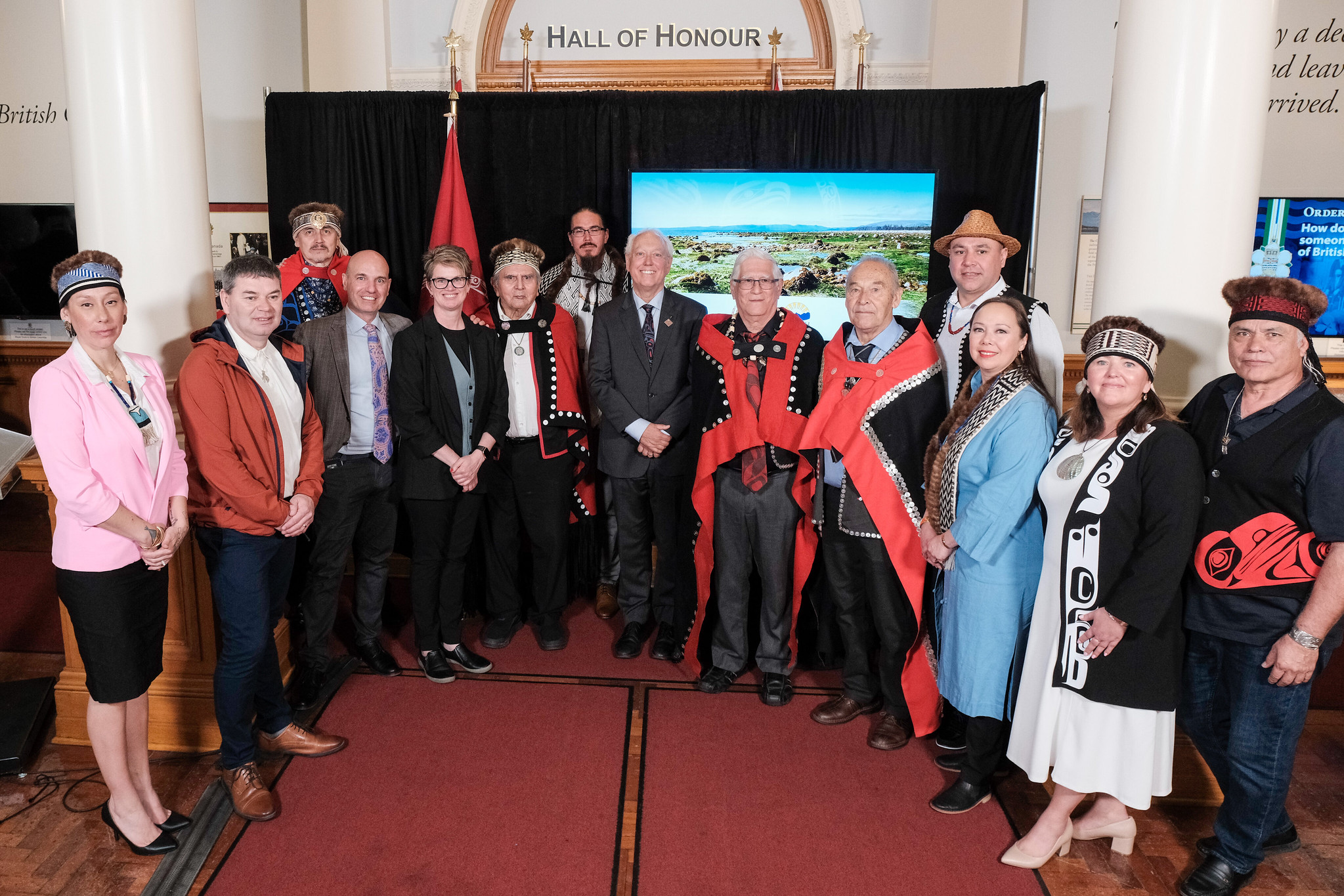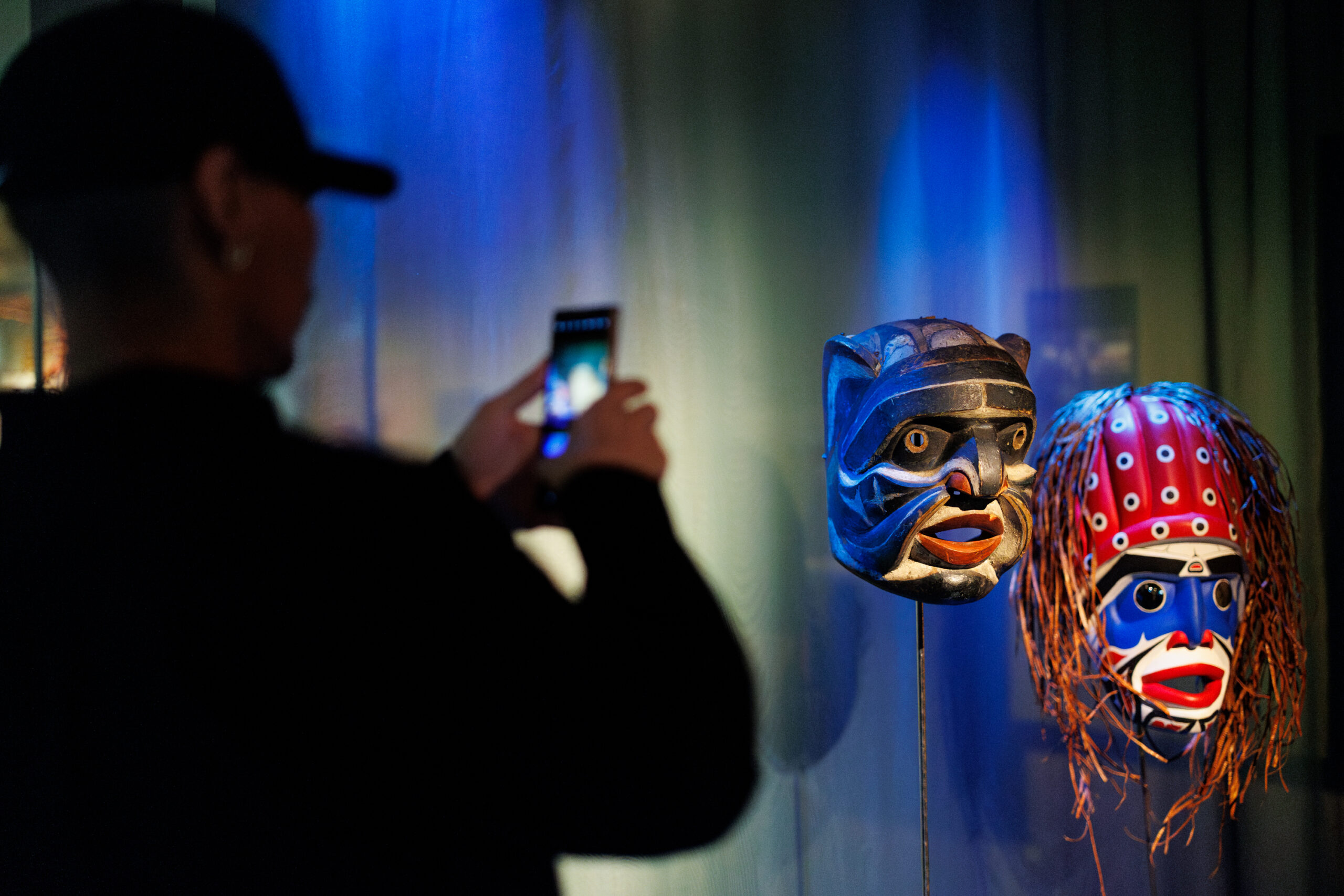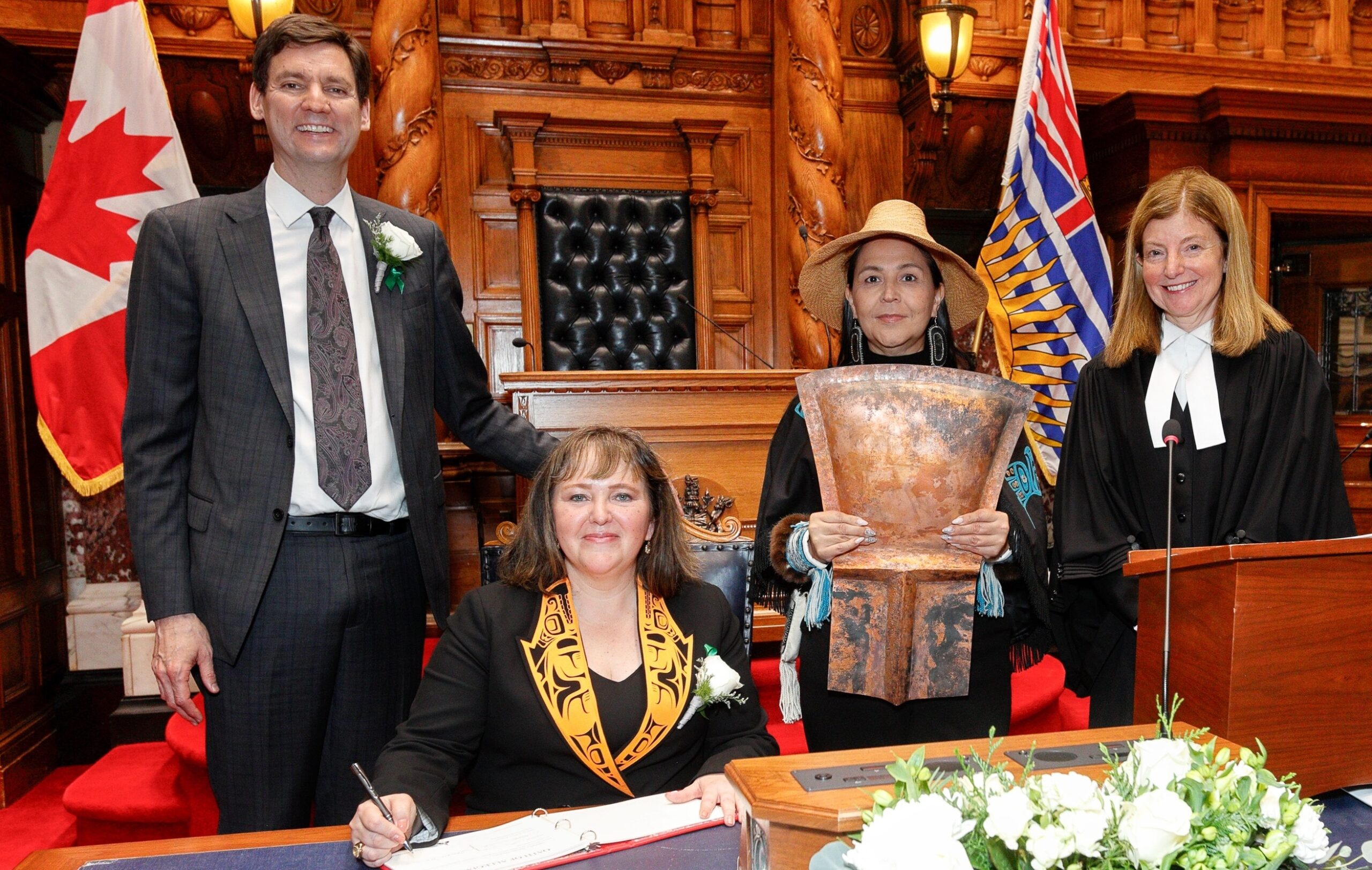The Haida Nation Recognition Act, which supports the Haida Nation’s inherent right of governance, has been adopted into provincial law in BC.
A Haida delegation, including members of the Hereditary Chief’s Council, elected representatives of the Council of the Haida Nation (CHN) and elected representatives from the two village councils on Haida Gwaii, traveled to the Legislative Assembly of BC to celebrate and bear witness to the third reading of the new legislation on May 9.
“One of the barriers in reconciling our differences with BC and Canada has been the lack of formal recognition of the Council of the Haida Nation as the governing body of the Haida Nation and of our inherent title and rights in Haida Gwaii,” says Gaagwiis Jason Alsop, President of the Haida Nation/Haida Recognition of Title Team (HRTT), in a press release. “This act begins to right that wrong and serves to lay a proper foundation for negotiations of recognition of Haida title. Today, we are finally able to acknowledge each other and to work, government-to-government, with respect and integrity.”
The Haida Nation Recognition Act, Bill 18, is the latest in a number of mutual commitments between the Province and the Haida Nation, the press release states. Together, the Haida Nation, BC and Canada have been working toward co-governance and reconciliation, for more than two decades.
Murray Rankin, BC’s Minister of Indigenous Relations and Reconciliation, says the provincial legislation is “long overdue.”
“This legislation was jointly crafted every step of the way and is the result of a progressive and incremental approach toward reconciliation,” Minister Rankin said. “Today reflects the passion and the commitment of the Council of the Haida Nation in advancing our relationship… The Haida Recognition legislation is a critically important step for our relationship, British Columbia and the Haida and soon Canada.”
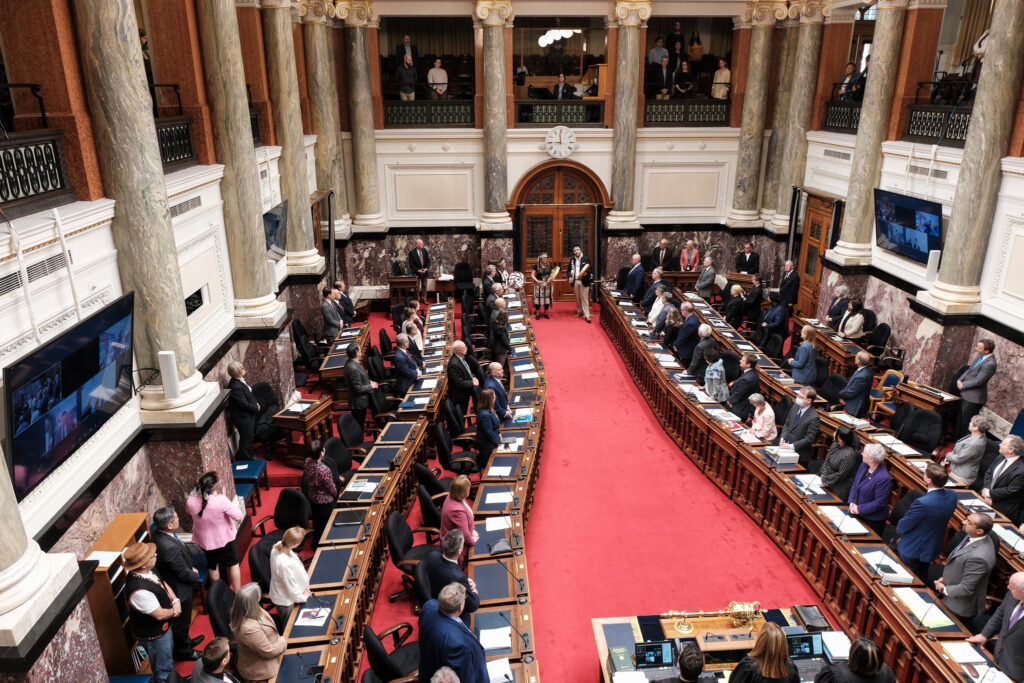
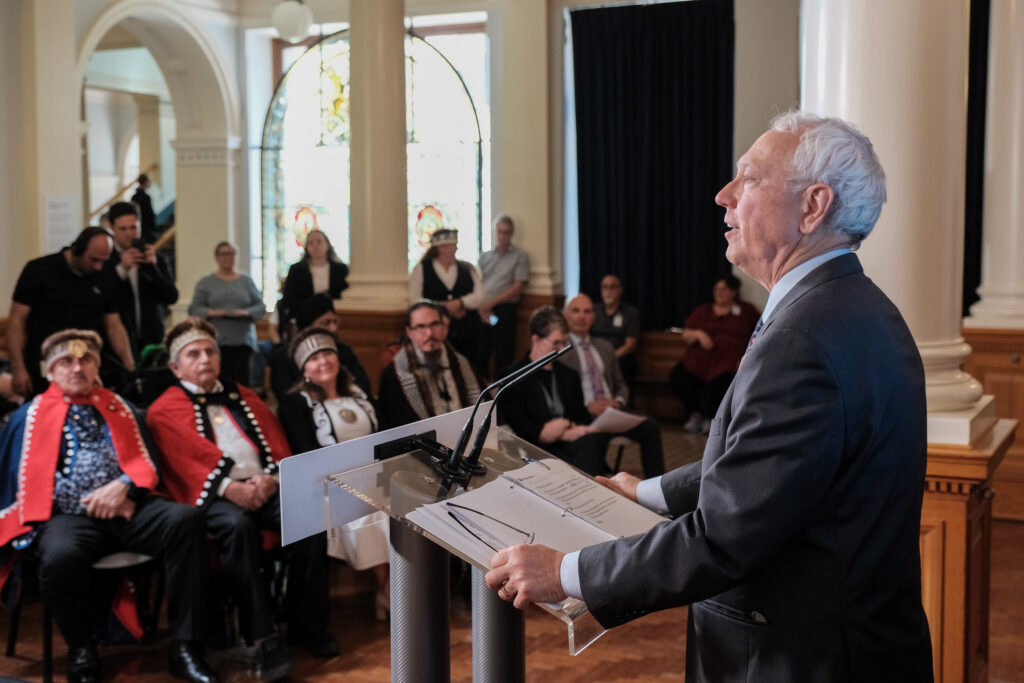

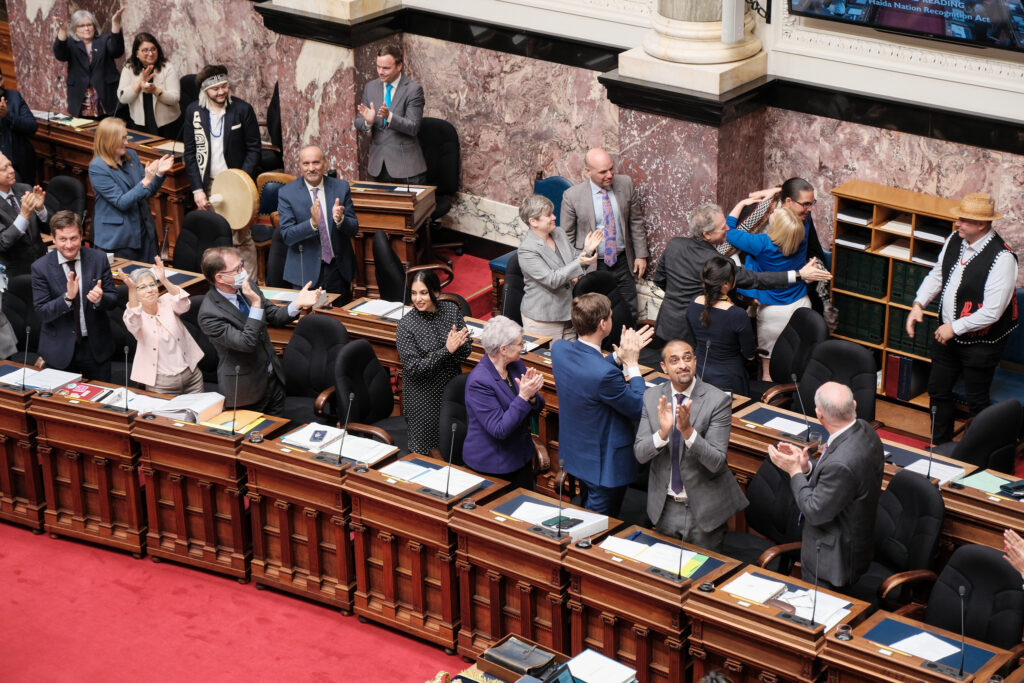
‘A historic day’
President Gaagwiis spoke on the floor of the Assembly after the third reading of Bill 18, acknowledging the day as one of celebration, but also one of remembrance.
“We must acknowledge the history that has us all here today. So we come to you to celebrate, and to acknowledge the past and the work and healing we’re doing together,” Gaagwiis said. “The smallpox epidemics and other diseases that spread with the coming of Europeans had a devastating impact on our people and our culture and in many ways helped lay the path for the colonial government to come and impose their jurisdiction on our lands and territories. Our thousands were reduced to hundreds.”
Despite the devastating impacts of colonialism, on the Haida population, culture and governance, which forced the Nation into “survival mode to carry on what was left,” Gaagwiis said they showed resilience and perseverance.
“Our people found ways to carry on the teachings and history of the land and of our ancestors, our kuníisii,” he said. Haida Chiefs had an audience with Sir James Douglas, Governor of the Colony of British Columbia in 1863, Gaagwiis shared, almost 160 years ago. Descendants of those Chiefs were a part of the Haida delegation present to bear witness to the passing of Bill 18. The Haida Nation’s long history of standing up to protect their territories and interconnected Rights and Title serve as proof that Haida people found ways to remain united as a people, he said.
Haida people have never surrendered or ceded their territories, Gaagwiis told the room. They have never signed a Treaty with Canada or the Province, and have never given up their lands and waters. Gaagwiis shared history of when his people expressed to the Royal Commission in 1913, their inherent Rights and Title to their territory, their concerns for their lands and waters managed under a colonial system, as well as their desire to “live in peace and harmony with those who come to settle” in Haida territory.
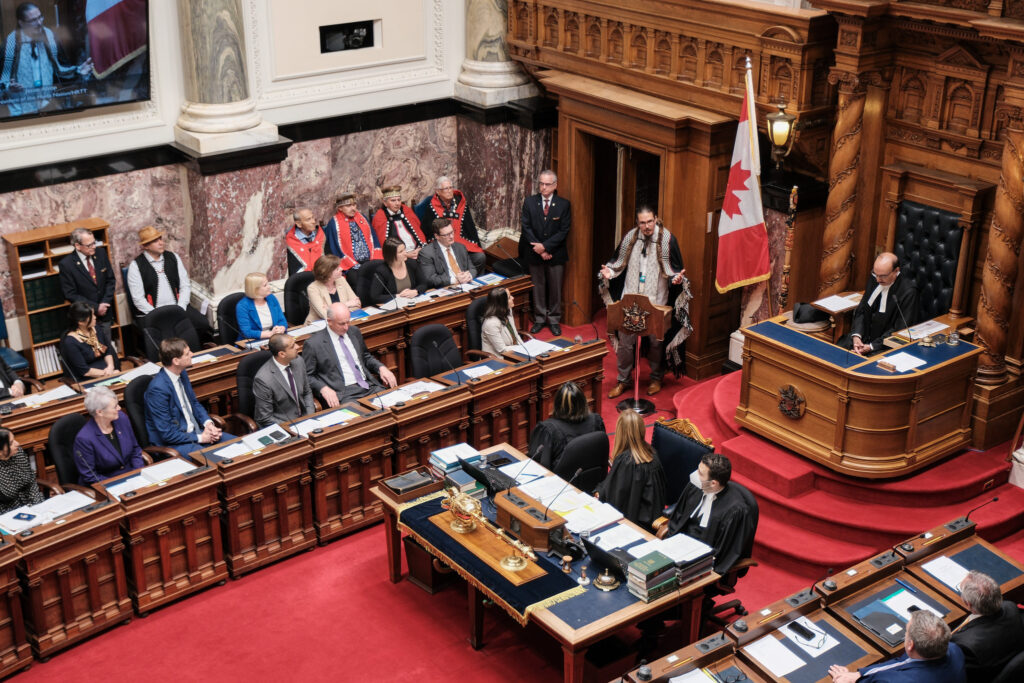
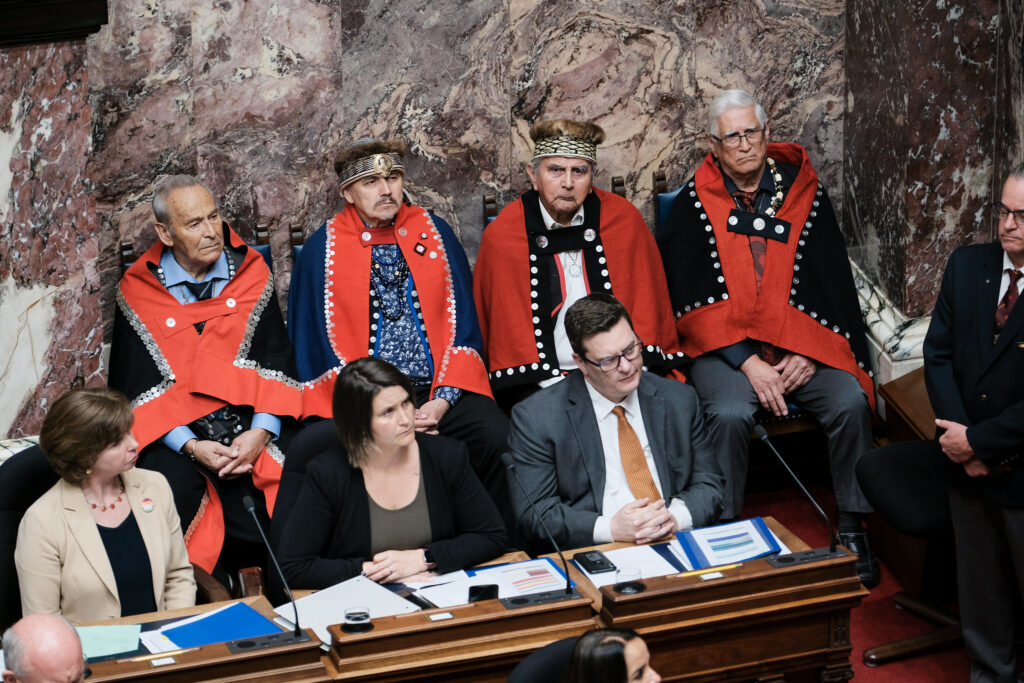
In 1974, CHN was formed, to organize Haida citizens, all people who had Haida ancestry, into one political entity. Over the past 50 years, CHN has been addressing their Rights and Title over their territories, working with collective action of Haida communities to protect their culture and way of living. This work was entrenched into the Constitution of the Haida Nation, which was developed for about 10 years before being formally adopted in the 2003 House of Assembly. The Constitution mandates CHN to settle the issue of Title and Rights.
Ginn waadluu un uula isdaa yagang Trevor Russ, Vice-President of the Haida Nation, says the formal recognition of the Haida Constitution will be “a huge precedent” for Haida people who have “given a lot of direction over the years to the Nation to do this work.”
“This enables us to continue moving in the development of our laws, based on Haida values and systems,” Russ said in an interview. “It’s a very historic day for us — a huge step for us going forward, but also just the start of a new journey of the work we have to do to continue moving forward in managing our territory.”
Healing a system
In 2021, the Haida Nation, BC and Canada entered into the GayG̱ahlda “Changing Tide” framework for parties to negotiate further agreements leading to Crown recognition of Haida governance and title on Haida Gwaii.
“This legislation is a significant and important step needed to enact the GayG̱ahlda agreement recognizing the self-determination of the Haida Nation,” said Jennifer Rice, MLA for the North Coast. “I am proud that the Council of the Haida Nation and BC are working shoulder-to-shoulder to achieve lasting reconciliation in Haida Gwaii.”
Gaagwiis said the new Act was proof of “good people working together to heal a system.”
“That means all of us bringing our collective experiences and wisdom to the table. That’s what we’re here for, to celebrate and witness this good work of good people working together.”
Following the third reading of the new Bill, the delegation joined a press conference on the first floor of the Assembly. Haida Hereditary Chief Stihlda Frank Collison spoke about when Haida homelands were surrounded by villages of Haida people who took care of certain areas around all the islands.
“They had their own way of governing themselves, doing their own procedures and protocols and looking after their villages,” Chief Stihlda said. “Yet there were times when they had to unite. Something would come up that would bring all the warriors together to go on an expedition of some kind. They would gather 40 to 50 canoes and proceed as one. That’s the Spirit of the Haida Nation that we’re trying to maintain and recapture. It has never left us.”
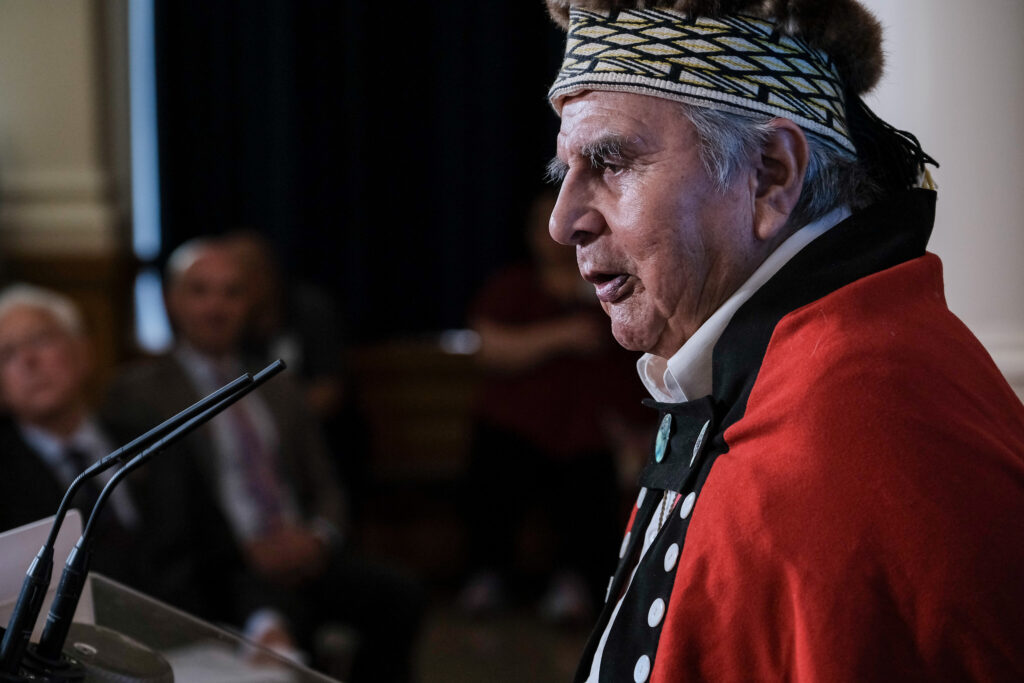
Haida people taught outsiders, “over many generations,” that their homelands belonged to the Haida people, Chief Stihlda shared.
“The Haida looked after things, took care of things, developed a social system, a wonderful art, reflecting all of those things in the art system that has become famous over the years. Those are the values we are looking at today, trying to protect, trying to impart to other people around us,” Chief Stihlda shared. “It has never been our intention to live in isolation. We welcome people from many different backgrounds to our islands with similar goals in their lives… if we continue in that way, I believe we will make a very positive move toward developing a very concrete comprehensive system of agreements with people around us.”
Laanas Tamara Davidson, an elected representative of the CHN/HRTT, said at the press conference that she feels humbled, excited and refocused.
“This change means we can weave our traditional leadership into our own government, based on how we see fit,” Davidson said. “I’m humbled to be on a team that has spent decades trying to get to this place we are today. We’ve had countless Haida people working for us and working with our allies. I’m a proud citizen of the Haida Nation and this is a step towards healing; a step towards reconciliation.”
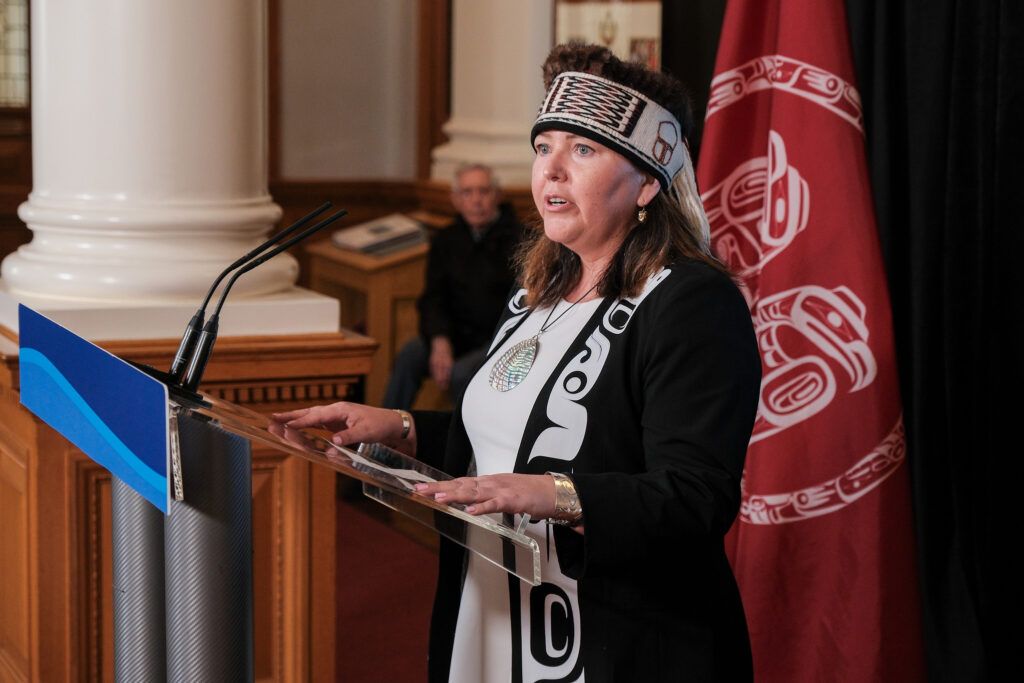
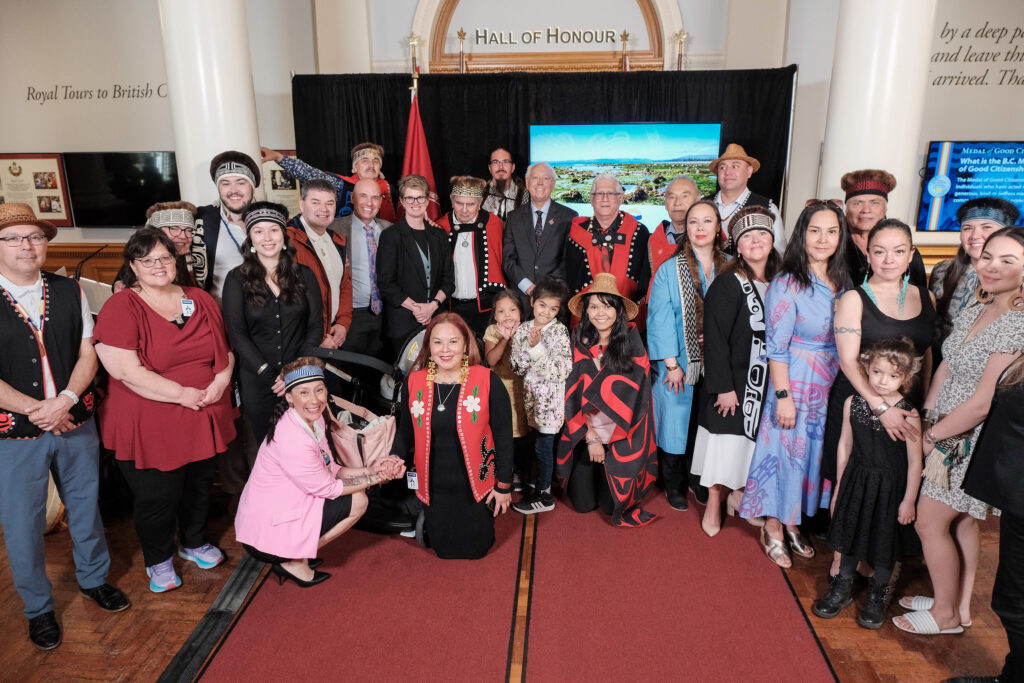
As a part of the tripartite agreement between the Haida Nation, BC and Canada, the Province has now fulfilled their commitment to legislate recognition of the inherent rights of governance and self determination of the Haida Nation, with CHN as its government. Collectively, reconciliation agreements and supporting legislation provide a foundation for further government-to-government work.
“We’re facing challenges perhaps we haven’t faced as humanity, in terms of the effects of climate change that affect all people,” said Gaagwiis in his closing remarks during the press conference. “Bringing all of our skills and all of our jurisdiction, all of our experiences and perspectives to work together, we can do a better job of looking after things and creating a better life for people.”
